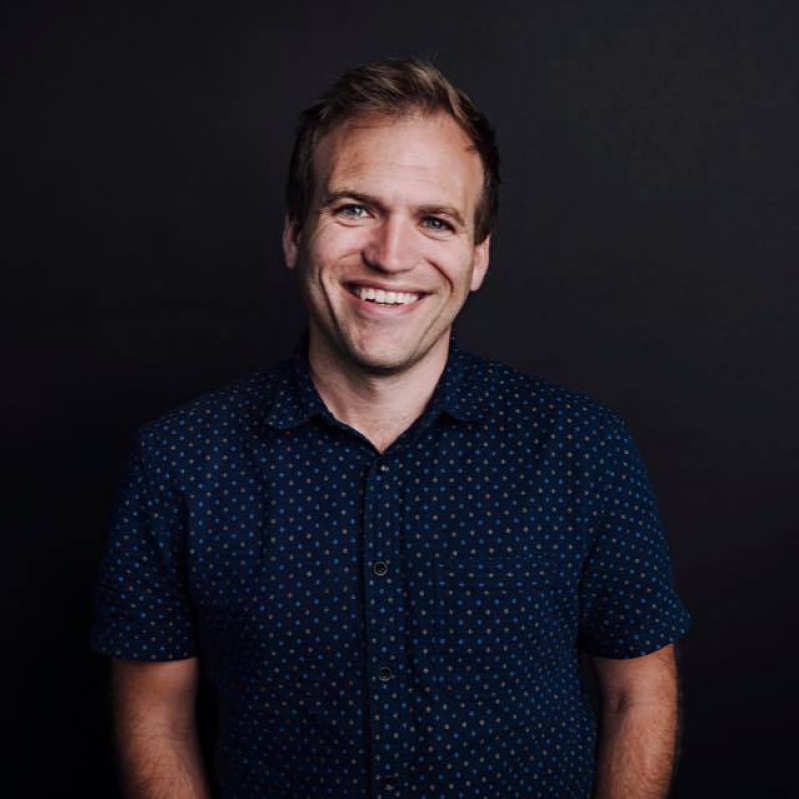
Johnnie Moore not only serves on President Donald Trump's Evangelical Advisory Board, he's also a best-selling author who is passionate about defending the persecuted Church.
Moore's 2015 book "Defying ISIS," which highlighted the atrocities ISIS was committing against believers, helped raise $25M to assist persecuted Christians in the Middle East. His follow-up book, "The Martyr's Oath: Living for the Jesus They're Willing to Die For," releases October 10 and includes first hand accounts of Christian persecution in dozens of countries around the world.
Dubbed the "Dietrich Bonhoeffer of today," Moore was this year awarded the Medal of Valor in Hollywood by the Simon Wiesenthal Center for his work. In an exclusive interview with GH, Moore shared some of the "miraculous" stories he encountered while circling the globe for "The Martyr's Oath."
GH) What inspired you to write "The Marty'rs Oath?"
JM: I've been on this journey for the last few years of getting to know the persecuted church, it's something I've cared a lot about my entire adult life. When I visited northern Iraq in 2014, the number one thing I heard was that these Christians felt alone, they felt like no one cared about them, they couldn't understand how 2 billion people on planet earth could say they're Christians, yet a few thousand Christians could be in such dire straits and there was no help for them.
That's when I made a commitment to tell their stories, with my first book, "Defying ISIS," and now with "The Martyr's Oath."
I embarked on a global research project and interviewed dozens and dozens of people around the world. I took thirty of the most amazing experiences and included them in this book. It's some context, some applications, and filled in the center with the firsthand account of regular people who've suffered a lot for their faith.
GH) Where does your passion for raising awareness about persecuted Christians stem?
JM: The title of the book draws from where my passion began. When I was in college I went to India and I attended a Bible school graduation service, and there were 2,000 graduates. Before they received their diploma, they had to stand up and take a martyr's oath; they had to say they were willing to die for Jesus if that was ever their fate.
On the wall of the church adjacent to this service was this placard of former graduates who had died for their faith. The subtitle of the book is, "really living for the Jesus that they'd die for." I think that pretty well encapsulates it. It's my conviction that there are so many pieces of the Christian life that we can only understand in the context of persecution. Our New Testament is either written about people being persecuted, or written to encourage people being persecuted. In the secure Church, where most of us live, it's harder to connect with that part of the Christian experience. This book is my attempt to make it easier for us to get closer to these people.
GH) How did your perspective on those persecuted around the world change while researching for this book?
JM: Everything changed -- I start looking at my life differently. It's easy it overlook our weaknesses in the culture we live in and it's easy to have a form of godliness without the power of it. Yet, with the persecuted church, people have an authenticity to their faith and an ease to their faith that cost them a lot. There were points where I writing this book where I became so emotional because of how powerful these stories were, I had to stop writing. I tried to preserve that.
GH: Can you share with me some stories that particularly impacted you?
JM: In one story, a Christian worker in the Middle East won to Jesus a terrorist who was working for Osama Bin Laden. There's a story about a guy who was in prison for his faith, and the next day, the judge told him, "I have to release you because in the middle of the night God came to me in a dream and told me to let you go." There's a story about a family of Syrian refugees who converted to Christianity after coming to a neighboring country. Once word got back that they'd converted, a jihadist sent them a letter that said, "I know where you are, and I'm going to crucify you." They sent back a letter that said, "We love Jesus. We are happy to die for Jesus, but please don't crucify us. We are not worthy to die the way He died."
I'm a Baptist, I don't spend a lot of my time looking for or talking about the miraculous. But as I wandered around the persecuted parts of the world, I couldn't help but stumble upon these types of miraculous stories.
GH) Do you find that there's apathy in regards to the persecuted church or do you think there's more awareness and concern regarding this issue?
JM: I think both are true. I think on one level, apathy is always an issue because we like safety and security. But, the Bible says we have an obligation to the persecuted Church. I don't have the option of not caring about people suffering within our shared faith, yet it's so easy not to. On the other hand, I think there's more awareness than at any point, and there's a terrible reason for that. It's because ISIS publicized their barbarity and took us back to the era of the Roman colosseum, killing people in gory and public ways. It has awakened the consciousness to these issues that we haven't seen in a very long time.
This is the experience of tens of thousands of people around the world every single week. People don't realize the scale. There's more Christian persecution at this moment than at any moment in Christian history.






